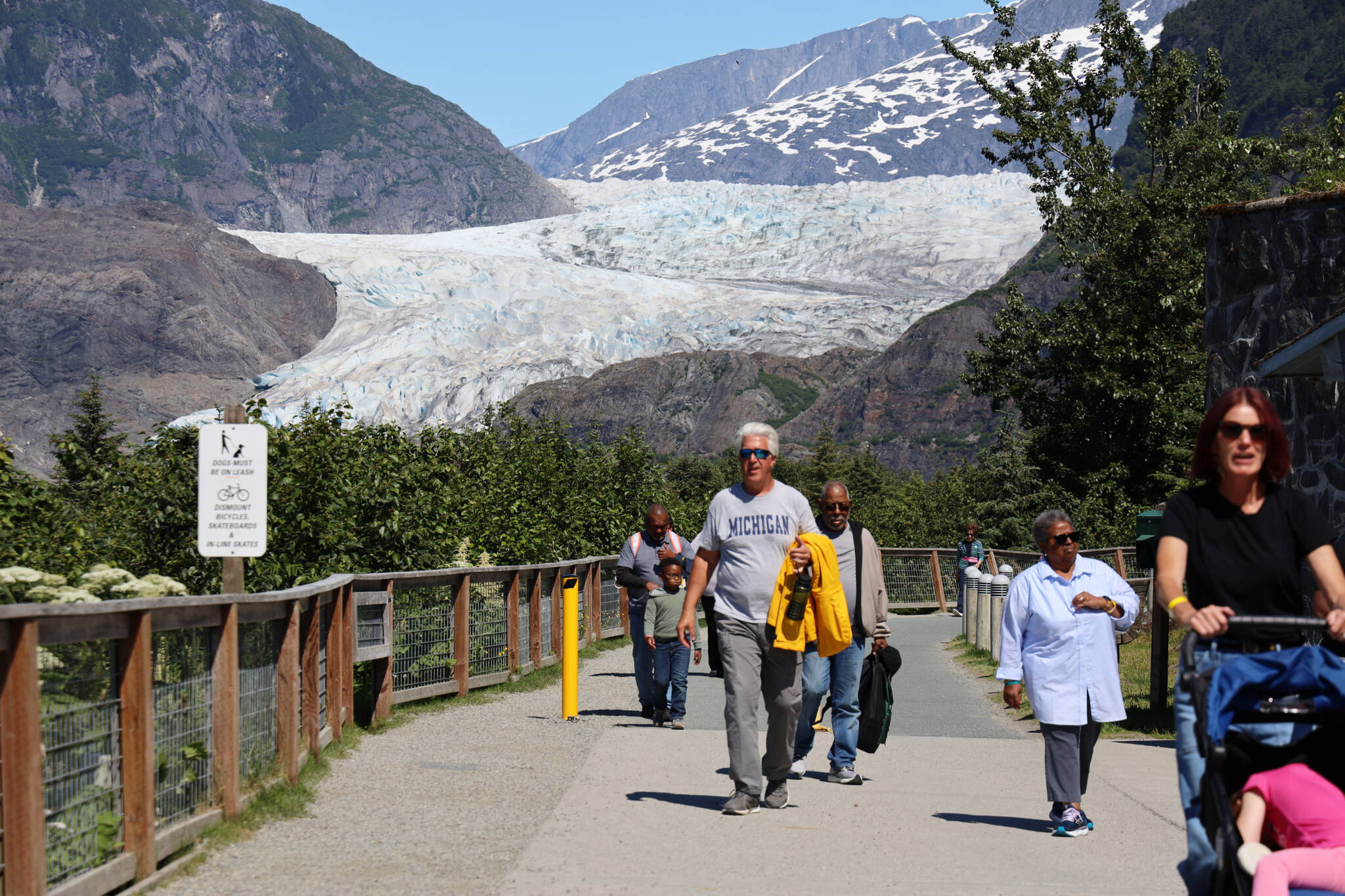The Central Council of the Tlingit and Haida Indian Tribes of Alaska and the U.S. Forest Service have agreed to co-steward the Mendenhall Glacier Recreation Area.
On Friday a memorandum of understanding was signed formalizing the agreement. It enables the Forest Service and tribe to collaborate on management decisions and future plans at the recreational area, and ensures they consider the traditional, cultural and historical knowledge of the tribe. The agreement also includes the co-stewardship of the Mendenhall Glacier Campground.
In a prepared statement, Tlingit and Haida President Richard Chalyee Éesh Peterson said it’s the responsibility of the tribe to steward the traditional lands of its people. He said the agreement ensures the tribe will have a voice in the management of its homelands.
“We have historic knowledge that should be used and shared when it comes to creating future plans for the Mendenhall Glacier Recreation Area. These lands tie us to our ancestors. They help us understand where we come from, who we are and how to live,” he said. “We are dedicated to the preservation and protection of the historic and cultural resources in the area.”
Kevin Hood, the regional tribal relations programs manager for the Forest Service, said the agency is excited to elevate the Alaska Native voice within the area by working with the tribe to develop interpretive projects, programming and planning, along with hiring interpretive staff for the visitor center and providing cultural training to existing staff.
“This agreement reflects a lot of hard work by both Tlingit and Haida, and the Forest Service,” he said. “It reflects a strengthening of tribal relations between federally recognized Indian tribes and federal land management agencies.”
The agreement will not affect the Forest Service’s large-scale overhaul of the Mendenhall Glacier Recreation Area that is nearing the final planning stages after several years, Hood said. He noted Tlingit and Haida offered considerable input during the comment and evaluation process, which was considered when drafting the plan that may get final approval this fall.
Hood said the agreement does not involve a financial investment from the tribe, but it does sets up a framework for supplemental project agreements in the future. He said the signing of the agreement is just the start of the growing relationship.
“We’re going to be really working together for years to come and we’re very excited as to where we may go,” he said.
Similar agreements of tribal and federal co-stewardship of federal lands have been occurring across the country following the 2021 signing of the Joint Secretary’s Order 3403, an order that directs the management of federal lands and waters to include tribal nations.
• Contact reporter Clarise Larson at clarise.larson@juneauempire.com or (651) 528-1807.

